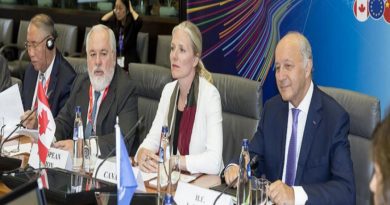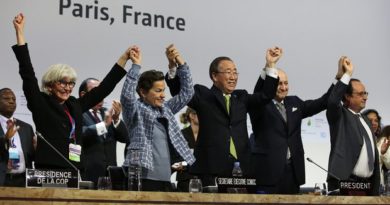Group raises alarm over tobacco epidemic as parties meet
As the seventh Conference of the Parties (COP7) to the Framework Convention on Tobacco Control (FCTC) kicks off in New Delhi, India on Monday, Executive Director of the Framework Convention Alliance for Tobacco Control (FCA), Francis Thompson, has said that Parties must shift their focus to ensuring that the treaty is as effective as possible on the ground to address the global tobacco epidemic.
Already, there is a forecast that one billion people- nearly the population of India- will die from tobacco use this century unless current trends change. However, the Parties to the FCTC COP meeting should take meaningful steps to alter that forecast.
The Conference of the Parties (COP) to the Framework Convention on Tobacco Control (FCTC) meets every two years. Known as COP7, next week’s meeting will bring together the 180 Parties to the FCTC, which represent nearly 90 percent of the world’s people. Non-Party countries and international and non-government organisations will also attend.
“After 10 years, FCTC Parties have developed a detailed consensus on the measures needed to address the global tobacco epidemic. Starting next week, Parties must shift their focus to ensuring that the treaty is as effective as possible on the ground,†said FCA Executive Director Francis Thompson. This means adopting particular items on the COP7 agenda.
For example, an expert group report for COP7 recommends creating an “implementation review committee†to identify obstacles that Parties might face when trying to put FCTC measures in place. The committee would then suggest ways to overcome such barriers, which can include lack of political will, technical assistance and money, as well as interference from the tobacco industry.
Another COP7 agenda item that should be prioritised is the report of a working group on mobilising more resources for tobacco control. Despite the FCTC’s life-saving measures* being widely recognised as effective and low-cost, in general few resources are dedicated to them. FCA urges COP7 to:
- Review Parties’ current implementation needs and develop a list of priorities; • Agree on a mechanism to routinely review Parties’ needs, and • Mandate the FCTC Secretariat, working with relevant stakeholders, to communicate implementation needs to potential donors strategically and systematically.
“The resource gap is simple: we just don’t have enough money and technical resources going into tobacco control,†said Thompson. “The official development agencies have lagged very far behind.â€
At COP6 in 2012, FCTC Parties adopted a global target to reduce tobacco use by 30 percent by 2025. Highlighting Parties’ progress towards that target would help potential donors to focus on the effectiveness of the treaty’s measures.
“The COP, as the specialised body that deals with the FCTC, must make the case for much more energetic implementation, with the necessary political will, technical assistance and resources to make this global target a reality,†said Thompson.
Other issues on the COP7 agenda that FCA will be watching include:
- Tobacco industry liability for the devastation caused by its products (Article 19); • The FCTC’s illicit trade protocol; • The treatment of tobacco in trade agreements; • Tobacco and sustainable development.
FCA is a civil society network of nearly 500 organisations in more than 100 countries whose mission is to strengthen the Framework Convention on Tobacco Control (FCTC) and support its full and accelerated implementation worldwide.




